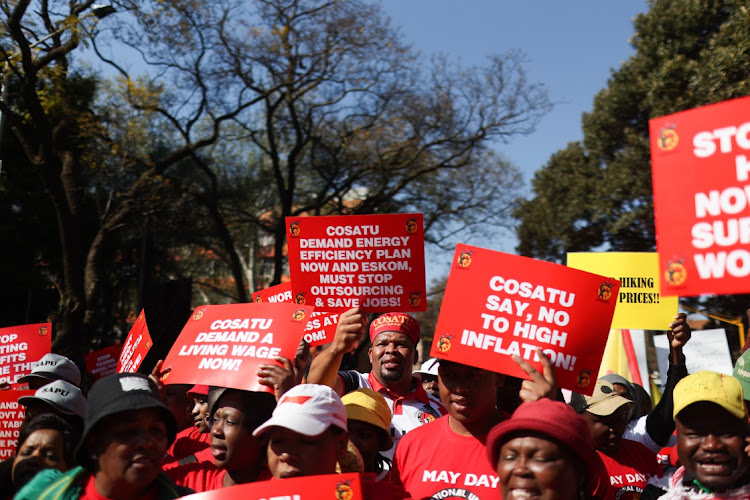Messages from the Fed pertinent to SA’s economy

However, this will not eliminate inequality or poverty
Global central bankers attended their annual Jackson Hole Economic Symposium, hosted by the Federal Reserve Bank of Kansas City in Wyoming, a little more than a week ago. The main act, as usual, featured US Fed chair Jerome Powell. His speech was short, direct and with a narrow focus, lasting less than 10 minutes.
Precise, narrow speeches are not what the Fed and central bankers are known for, but this time — amid 40-year-high inflation and market doubts that the Fed would continue to hike rates even with an impending economic recession — it needed commitment.
Several key messages had a bearing on SA.
First, price stability is the mandate of the central bank. Second, its focus is on bringing inflation down within its mandated target. Third, without price stability the economy does not work for anyone and cannot grow in a sustainable way. Fourth, achieving price stability will take some time and require more aggressive interest rate hikes. Fifth, higher interest rates will slow economic growth, with a rising risk of recession.
These were messages for the Fed and the US economy. However, they are all applicable to SA.
Labour demanded a rise in the national minimum wage to R72 an hour, a basic income grant of R1,500 and caps on the fuel price and interest rate hikes during its unsuccessful national shutdown. What would a short and direct response be to these demands?
Raising the minimum wage will surely improve workers’ incomes, but will not eliminate inequality within the employed population or poverty for the jobless. It is more likely to lock out the unemployed from the labour market as businesses still recovering from Covid’s effects and focused on getting back to profitability will respond by cutting down on labour.
A basic income grant could help reduce poverty, but it will not reduce inequality between the unemployed and employed, nor among those employed. It also needs to be funded by higher taxes from a faster growing economy or by increasing them.
SA buys all its oil requirements used for fuel. The basic fuel price, which accounts for about half the total cost of fuel, is determined by the US dollar price of oil and the rand exchange rate relative to the US currency. The government cannot do anything about these factors.
Two types of taxes — fuel levies and the Road Accident Fund (RAF) — account for about a third of the fuel price. Retail and wholesale margins and storage and distribution costs account for about a fifth of the price at the pump.
“A basic income grant could help reduce poverty, but it will not reduce inequality between the unemployed and employed, nor among those employed”
Capping the price increase on fuel requires trade-offs, meaning cutting the fuel levy, the RAF or the profits of companies involved in the fuel trade. Cutting the fuel levy means reducing the R80bn-plus tax revenues from the fiscus. Something else in the budget must be reduced to accommodate that. Cutting the RAF means compensating victims of motor vehicle accidents must also be cut or this cost must be carried by some other means.
The demand to cap interest rates, which I assume to be interest rates on household loans, calls for a distortion in the functioning of capital markets that cannot work. You cap interest rates and the source of capital dries up as the owners of capital will not be compensated enough for bearing default risk.
If this is meant to be capping the repo rate, it’s simply a populist demand not based on any practical realities of SA’s economic structure. One cannot have a lower cost of living through low inflation and low interest rates without first achieving low inflation.
High interest rates ultimately bring down inflation, whatever its source, and ultimately result in lower interest rates. This is what Powell communicated at Jackson Hole. The same applies to SA because 7.8% inflation in this country is not significantly different to 8.5% inflation in the US.
